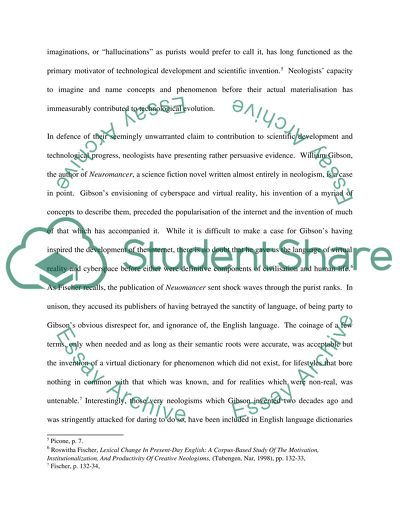Cite this document
(“Neologisms in Films and Televison Essay Example | Topics and Well Written Essays - 3000 words”, n.d.)
Retrieved from https://studentshare.org/english/1522284-neologisms-in-films-and-televison
Retrieved from https://studentshare.org/english/1522284-neologisms-in-films-and-televison
(Neologisms in Films and Televison Essay Example | Topics and Well Written Essays - 3000 Words)
https://studentshare.org/english/1522284-neologisms-in-films-and-televison.
https://studentshare.org/english/1522284-neologisms-in-films-and-televison.
“Neologisms in Films and Televison Essay Example | Topics and Well Written Essays - 3000 Words”, n.d. https://studentshare.org/english/1522284-neologisms-in-films-and-televison.


